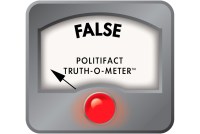Latest KFF Health News Stories
Los republicanos están considerando recortes a Medicaid. De nuevo, ¿qué es Medicaid?
Más de 79 millones de personas reciben servicios de Medicaid o del relacionado Programa de Seguro de Salud Infantil (CHIP). Esto representa aproximadamente el 20% de la población total de Estados Unidos.
A Program To Close Insurance Gaps for Native Americans Has Gone Largely Unused
Health leaders say a tool to boost medical coverage for Native Americans, a population that has long faced worse health outcomes than the rest of the nation, has been underused by many states and tribes since it was written into the Affordable Care Act more than a decade ago.
Voters Backed Abortion Rights but State Judges Have Final Say
Though abortion rights supporters prevailed on ballot measures in seven of the 10 states where abortion was up for a vote on Nov. 5, the state supreme courts voters have elected indicate legal fights to come aren’t clear-cut.
How America Lost Control of the Bird Flu, Setting the Stage for Another Pandemic
Exclusive reporting reveals how the United States lost track of a virus that could cause the next pandemic. Problems like the sluggish pace of federal action, deference to industry, and neglect for the safety of low-wage workers put the country at risk of another health emergency.
Cómo Estados Unidos perdió el control de la gripe aviar, abriendo las puertas a otra pandemia
Casi un año después del primer brote de gripe aviar en el ganado, el virus no muestra señales de detenerse. El gobierno estadounidense no consiguió eliminar el virus de los tambos cuando estaba confinado a un puñado de estados.
How a Duty To Spend Wisely on Worker Benefits Could Loosen PBMs’ Grip on Drug Prices
As criticism of pharmacy benefit managers heats up, fear of lawsuits is driving some big employers to drop the “Big Three” PBMs — or force them to change.
Journalists Dig Into Vaccine Debate and America’s Obesity Rates
KFF Health News staff made the rounds on national and local media in recent weeks to discuss topical stories. Here’s a collection of their appearances.
As Nuns Disappear, Many Catholic Hospitals Look More Like Megacorporations
The nation’s Catholic health systems were largely founded and led by nuns with a mission to serve the sick regardless of their creed or financial means. Today, no nuns run any U.S. Catholic health system, while many of these hospitals pull in billions, according to their financial reports.
Sin monjas en sus pasillos, muchos hospitales católicos parecen más mega corporaciones
La Iglesia Católica aún regula la atención que se brinda a millones de personas en estos hospitales cada año, usando directrices religiosas para prohibir abortos y limitar anticonceptivos.
Vance Wrongly Blames Rural Hospital Closures on Immigrants in the Country Illegally
Experts disputed the claim by Republican vice presidential candidate JD Vance, noting that a range of other issues — from low reimbursement rates to declining patient use — combine to cause these facilities to shutter.
Arkansas’ Governor Says Medicaid Extension for New Moms Isn’t Needed
Federal law requires states to provide pregnancy-related Medicaid coverage through 60 days after delivery. Arkansas has not expanded what’s called postpartum Medicaid coverage, an option that gives poor women uninterrupted health insurance for a year after they give birth.
Her Life Was at Risk. She Needed an Abortion. Insurance Refused To Pay.
Insurance coverage for abortion care in the U.S. is a hodgepodge. Patients often don’t know when or if a procedure or abortion pills are covered, and the proliferation of abortion bans has exacerbated the confusion.
Cuando la aseguradora se niega a pagar un aborto que es médicamente necesario
En el país, la cobertura para la atención del aborto es laberíntica. A menudo, los pacientes no saben cuándo un procedimiento, o las píldoras abortivas, están cubiertas, si es que lo están; y la proliferación de prohibiciones ha exacerbado la confusión.
Planned Parenthood to Blitz GOP Seats, Betting Abortion Fears Can Sway Voters
The reproductive rights organization hopes to oust GOP incumbents from key California congressional seats by highlighting the possibility of a national abortion ban. A state Republican official calls it a swing and a miss, noting that, under Democrats, hospitals have closed maternity wards and filed for bankruptcy.
Planned Parenthood enfrenta a los republicanos y espera captar el apoyo de los votantes
Esta ofensiva estratégica es parte de un esfuerzo nacional más amplio del grupo de derechos reproductivos, que se propone evitar que una mayoría republicana apruebe restricciones al derecho al aborto, incluida una prohibición nacional.
Battleground Wisconsin: Voters Feel Nickel-and-Dimed by Health Care Costs
In the swing state of Wisconsin, the cost and availability of health care have emerged as key issues. Voters there say prescriptions, procedures, and health insurance policies are too expensive, and must be addressed by the next president, whether Republican or Democrat.
Presidential Politics, Polka and Wisconsin
Wisconsin, the land of fried cheese curds and the Green Bay Packers, is one of a half-dozen key battleground states where President Biden is trying to make health care a key issue in his expected November matchup with former president Donald Trump. Biden narrowly won Wisconsin in 2020, after it went for Trump in 2016. […]
Farmworkers Face High-Risk Exposures to Bird Flu, but Testing Isn’t Reaching Them
Federal officials are offering $75 to dairy workers who agree to be tested for bird flu. Advocates say the payments aren’t enough to protect workers from lost wages and health care costs if they test positive.
Los trabajadores agrícolas enfrentan algunas de las exposiciones más intensas al virus de la gripe aviar, pero defensores dicen que muchos de ellos no tienen recursos a los que recurrir si se enferman.
Millions Were Booted From Medicaid. The Insurers That Run It Gained Medicaid Revenue Anyway.
Big health insurers that have contracts with state Medicaid programs find themselves making more money even as enrollment in Medicaid programs has dropped. Here’s why.





















